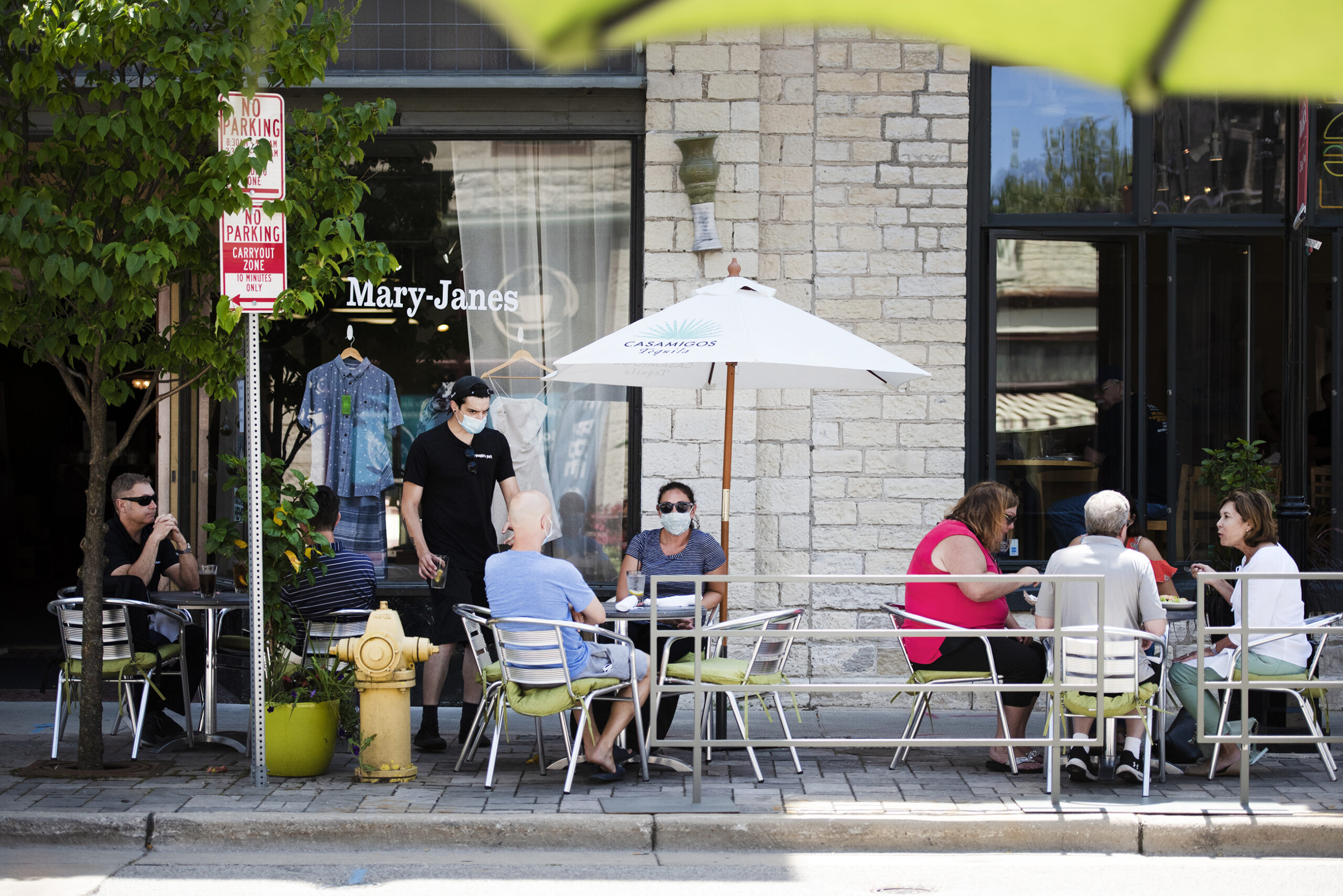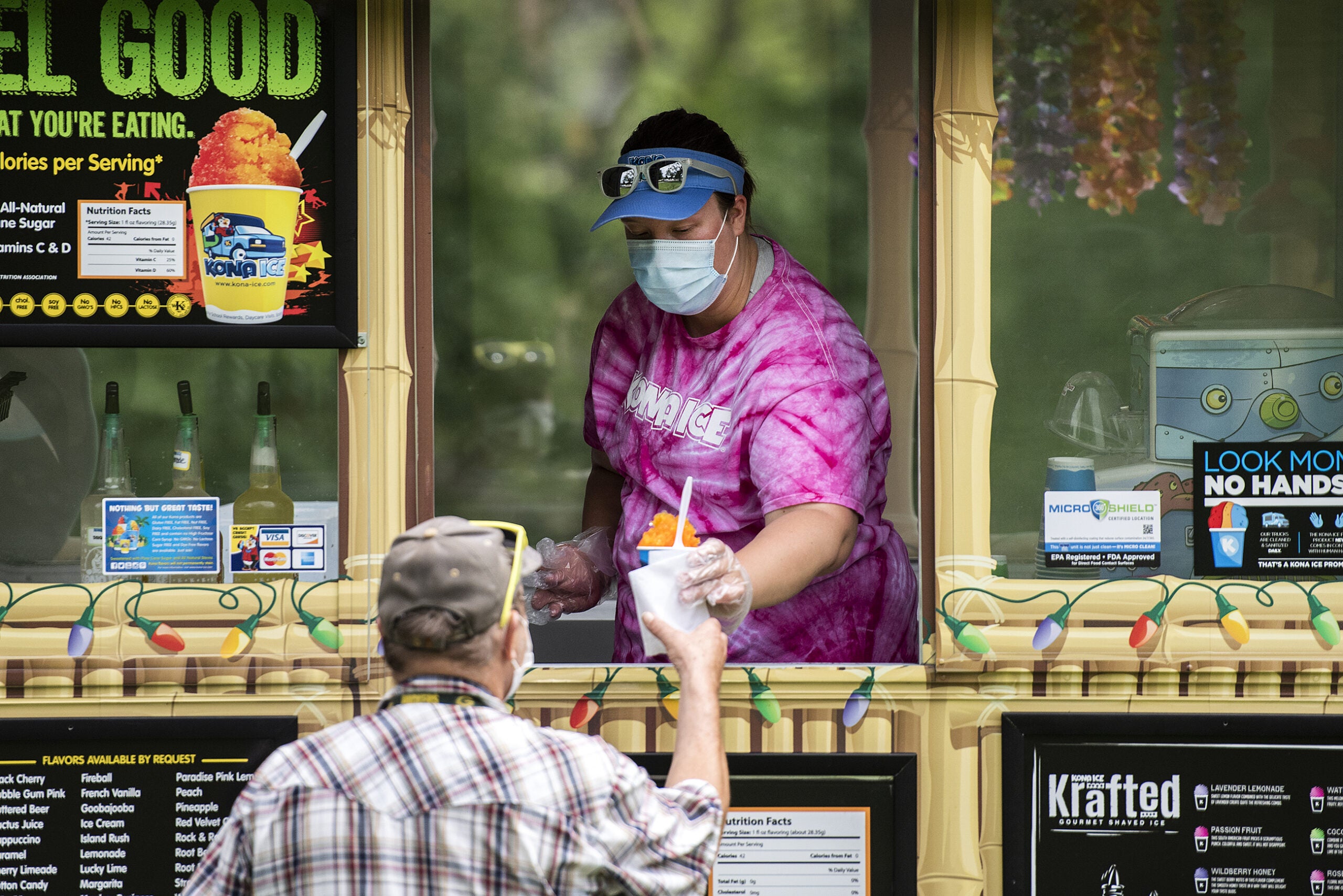One year ago, most Wisconsin business owners who responded to economic data surveys said they expected to lay off a significant share of their workers. And many said they didn’t know if their businesses would still exist in a year.
Today, the picture is starkly different. While some businesses did close, and unemployment initially spiked in 2020 before coming down significantly, the long-term impact appears to have been much less stark than many predicted during the early pandemic.
In Wausau, where the downtown business group Wausau River District Inc. last week released the results of a recent survey, only one-third of businesses surveyed said they had laid workers off in the last year. That’s compared to two-thirds who said they expected layoffs as of April 2020.
Stay informed on the latest news
Sign up for WPR’s email newsletter.
River District director Blake Opal-Wahoske said the change in sentiment in part reflects the extreme uncertainty of a year ago, when Gov. Tony Evers’ stay-at-home order had only recently taken effect. As the pandemic proceeded, businesses learned to adapt to changing health orders and also to updated knowledge about how COVID-19 spreads.
“I think this really shows our small business community’s ability to adapt to consumer behavior patterns and adjust their business models to actually make their businesses more lucrative,” Opal-Wahoske said.

The University of Wisconsin Oshkosh’s Center for Customized Research has been surveying businesses statewide since the pandemic began. They’ve tracked similar changes in sentiments, said director Jeffrey Sachse. In its most recent survey, 70 percent of businesses said that under current conditions, they can survive for at least seven months. Twenty percent said they can last for less than six months, and another 18 percent said it was “impossible to say.”
Compare that to the center’s May 2020 survey, when more than 41 percent of respondents said they’d make it less than six more months, and only 38 percent said they could survive for seven months or more.
The reasons the pandemic’s economic cost to these businesses has been less than anticipated are complex, but Sachse offered some possible factors:
- A relatively short duration of the spring 2020 “lockdown,” when many of the businesses were temporarily shuttered.
- State and federal aid programs that offered economic relief to businesses affected by the pandemic.
- Businesses’ desire to keep their workers led many to reduce hours or institute furloughs rather than doing permanent layoffs. That may have been in part because, before the pandemic, the economy was strong and workers were at a premium.
- Changing business strategies that allowed some businesses to operate more safely, for example via drive-thru or curbside pickup.
What most Wisconsin small businesses haven’t done, Sachse said, is shift their business models permanently.
“Very few businesses have signed long-term contracts or committed to this idea that delivery will be 30 percent of business when this goes back to normal,” he said. “They’re assuming that we will go back into restaurants. And for a retail store, they weren’t going to try to figure out how to staff an e-commerce fulfillment side of their business, let alone deal with the inventory hassles.”
That means many small businesses are expecting that the lifestyle changes many people made during the pandemic won’t stick.
In Wausau, Opal-Wahoske said a big question for downtown businesses is to what extent office jobs continue with remote work in the coming months.
“We’ve leaned heavily in the past on our daytime economy,” he said, meaning those who go out for lunch downtown or shop there during the work day. “If remote working continues, what kind of implications will that have on our downtown?”
Wisconsin Public Radio, © Copyright 2024, Board of Regents of the University of Wisconsin System and Wisconsin Educational Communications Board.






